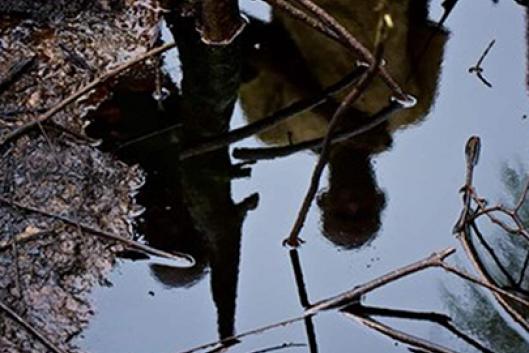Godwin Uyi Ojo, Environmental Rights Action (ERA)/ Friends of the Earth Nigeria
While clean up and remediation of Ogoniland was put on hold due to the pandemic, drilling and exploitation of oil and gas continues without problems.
Despite the Covid-19 pandemic, many corporations, especially in the oil and gas sector as well as in the oil palm plantations industry, continued their operations as “essential services,” while the rest of society in Nigeria remains under lockdown. During the lockdown, the International Oil Companies (IOCs) in some instances failed to adhere to simple protocols put in place to prevent the spread of Covid-19, including failure to ensure transparency in disclosing the status of their staff and ensuring social distancing, which pitched the Rivers state government against the federal government.
It has been more than two decades since nine Ogoni leaders were executed for standing up against Shell's operations in their communities. While oil production has ceased, pipelines operated by Shell still crosses land and waterways in Ogoni, which means that the area is still plagued by oil spills. In 2011, a United Nations Environment Programme (UNEP) report exposed extensive oil pollution and severe health risks in Ogoni, including polluted drinking water. The report recommended that Shell clean up every oil spill they are responsible for in the Niger Delta.
A recent field-monitoring visit conducted by ERA/Friends of the Earth Nigeria to the polluted sites in Ogoni in April 2020, showed that the implementation of UNEP’s recommendations has been rolled back in several ways. While the Ogonis continue to suffer the impact of a wrecked environment from hydrocarbon pollution as well as the destruction of tropical and mangrove forests, the hope of clean up and remediation is pushed back using the Covid-19 pandemic as a decoy for contractors' withdrawal from site. However, while clean up was put on hold at many sites, drilling and exploitation of oil and gas continues without stopping.
The pressure on the government and oil companies to pay the committed US$200 million annually into the Statutory Clean Up and Rehabilitation Fund has waned and suffered a major setback as funds for 2020 are yet to be released. Further, the high cost of fighting the Covid-19 pandemic and the dependence on oil and gas in the event of crashing export prices has compounded the situation, leaving the government helpless. It has also eased the pressure on the Hydrocarbon Pollution and Restoration Project, the government agency responsible for the clean-up, as civil society in general were unable to conduct their face-to-face advocacy and campaigns on a regular basis. A proposed oversight visit of Nigeria’s national assembly committee on Ecology and Climate Change to the pollution sites has also been postponed pending the lifting of lockdown and interstate travel restrictions. Postponement of these supervisory visits may further affect the quality of clean up.
In Ogoni, oil spills are found at depths of up to 5 meters. This has contaminated the soil and water sources, and this pollution continues in spite of the halt of oil production arising from conflicts between communities and Shell, an oil multinational that has operated for decades in the area. The rivers and streams remain polluted and not even emergency and relief measures have been adequately provided to the people. Farm yields and fish catch are depleting, leaving the communities to bear the brunt of such destruction. The cumulative environmental degradation remains unaddressed and the Ogonis remain worse off for it.
The measures in place to confront the Covid-19 pandemic have helped social movements and actors to redirect attention to the nature of development, the modes of production and consumption as well as to scrutinize the relations between the global North and the global South. They have underlined a major challenge in the crisis of over-exploitation of natural resources of the global South by the global North that is leading to environmental degradation, climate change and deforestation as well as violent conflicts at the sites of extraction and production; not forgetting the conflicts next to refineries and factories using these fossil fuels.
The world, and in particular the global North, needs to confront the unjust system in place which is based on exploitation and accumulation for the benefit of a few and which increasingly feeds overconsumption, largely in the global North, while exacerbating social disparity and inequalities.
New visions of development(s) are required for a system change that allows overproduction and overconsumption to stop while building upon transformative just transitions from fossil fuels to just renewable energy sources, a process which ERA is currently championing in Nigeria. This means the world needs to shift to an economy following the idea of “leave the oil in the soil,” which would protect the environment and rural livelihoods. There is a need to halt the continued privatization of our lands, food, water and energy sources that local communities depend on.
Individuals and communities in Nigeria are already showing alternatives that ensure a just and localized access to energy sources by producing and supplying solar energy off the grid and stand-alone mini-grid systems that allow them to control their own energy sources. Through social mobilisations from the local to the global, awareness raising and consensus building, these alternative visions keep growing.
>>> See here all the Reflections amid the Covid-19 Pandemic from WRM’s Advisory Committee
